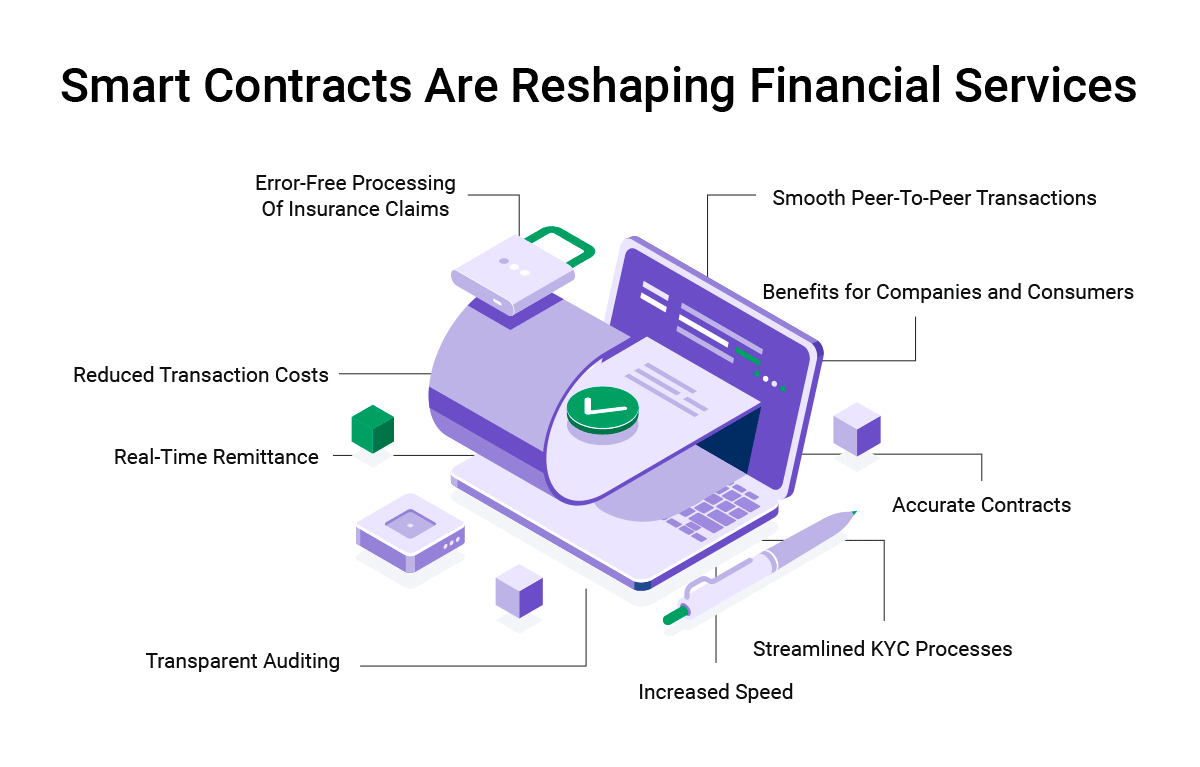Canal Mail Corp: Your Hub for Daily Insights
Explore the latest news, tips, and trends across various topics.
Smart Contracts: Because Fairness Should Be Written in Code
Unlock the future of fairness! Discover how smart contracts are revolutionizing transparency and trust in digital transactions.
What Are Smart Contracts and How Do They Ensure Fairness?
Smart contracts are self-executing contracts with the terms of the agreement directly written into code. They operate on blockchain technology, ensuring that the contract's execution is transparent and immutable. This technological approach allows for trustless transactions, where parties do not need to rely on intermediaries. By using smart contracts, businesses and individuals can automate complex processes while minimizing the risk of disputes, fraud, or manipulation.
One of the primary ways that smart contracts ensure fairness is through their programmed nature. They automatically execute when predetermined conditions are met, thereby removing any potential for bias or human error. Additionally, since all actions taken via a smart contract are recorded on the blockchain, this provides a transparent audit trail that can be easily verified by any interested party. This transparency fosters trust among participants, making smart contracts an ideal solution for industries ranging from finance to supply chain management.

Counter-Strike is a popular team-based first-person shooter game that has captivated players worldwide since its inception. The game focuses on two teams, terrorists and counter-terrorists, competing to complete objectives or eliminate each other. For those interested in gaming bonuses, you may want to check out the bc.game promo code to enhance your gaming experience.
The Role of Smart Contracts in Promoting Transparency and Trust
Smart contracts are self-executing contracts with the terms of the agreement directly written into code, enabling them to automatically enforce and execute terms once predetermined conditions are met. This innovative technology significantly enhances transparency by ensuring that all transactions are recorded on a blockchain, which is immutable and publicly accessible. As a result, all parties involved can verify the execution and terms of the contract in real-time, eliminating the chances of disputes and fostering a stronger sense of trust within business transactions.
Furthermore, the decentralized nature of smart contracts plays a crucial role in promoting ethical business practices. By removing intermediaries and minimizing the need for trust between parties, smart contracts allow for direct peer-to-peer interactions, reducing the potential for fraud or corruption. The use of secure blockchain technology guarantees that once a contract is executed, it cannot be altered or tampered with, which serves to enhance accountability among all parties. This new level of transparency and trust revolutionizes industries ranging from finance to supply chain management, paving the way for more resilient and responsible business ecosystems.
Common Misconceptions About Smart Contracts: Debunking the Myths
Smart contracts are often misunderstood, leading to a range of common misconceptions that can confuse both newcomers and seasoned blockchain enthusiasts. One major myth is that smart contracts are legally binding agreements. While they automate execution based on predetermined conditions, they do not replace traditional legal contracts. Instead, they function within the framework of existing laws and may require legal interpretation if disputes arise. This distinction is crucial for businesses considering the adoption of blockchain technology.
Another prevalent misconception is that smart contracts are entirely infallible and free from error. In reality, the implementation of a smart contract depends heavily on the coding and logic embedded within it. Bugs or vulnerabilities in the code can lead to unexpected outcomes, as seen in several high-profile cases in the past. Therefore, thorough auditing and testing are essential practices to ensure the security and reliability of smart contracts, underscoring the importance of human oversight in the development process.